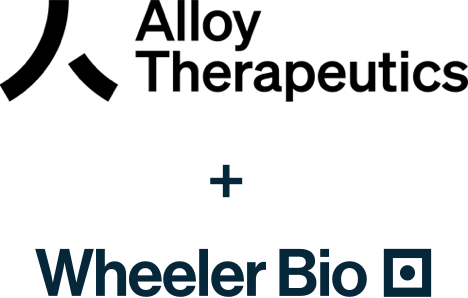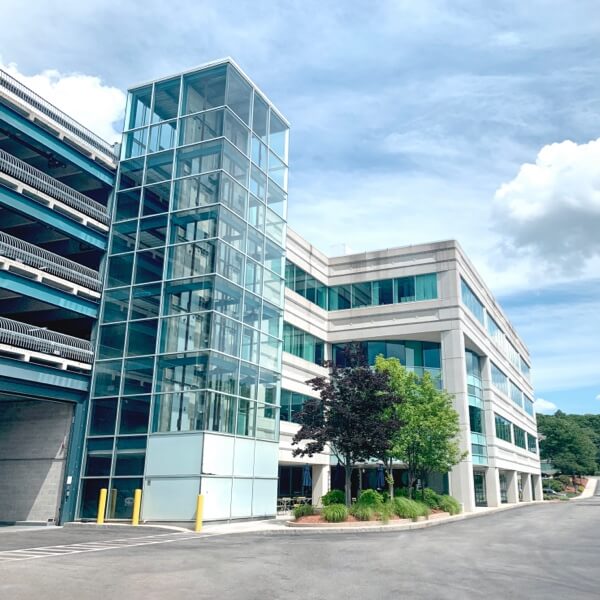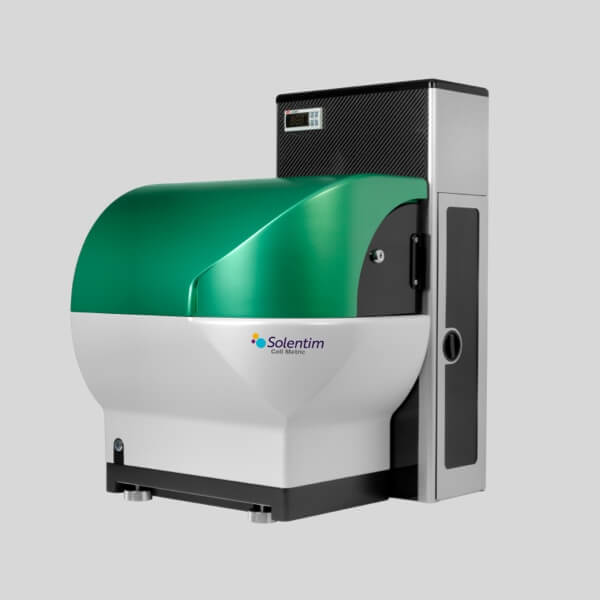Capabilities
Boston R&D Center
Alloy Therapeutics’ Boston-based research facility is the site of Wheeler Bio’s new R&D Center. With its innovation mandate squarely fixed on protein sciences, the Boston-based Wheeler Bio team is developing enabling tools and processes centered on expression vectors, transient and stable pool based protein production, advanced cell line engineering, and preclinical material generation from stable pools (milligrams and grams). Co-location of Wheeler’s R&D Center inside a discovery partner like Alloy Therapeutics allows unfettered collaboration among scientists at partnering organizations for the direct benefit of CRO customers.

CRO Partnerships
Wheeler’s unique, pioneering model enables unprecedented collaboration
Wheeler Bio is democratizing the development-to-manufacturing process while helping CROs extend their capabilities beyond discovery, providing even more value to CRO customers. We are on a mission to out-collaborate the competition so that we can streamline the discovery-to-IND process for innovators and their antibody therapeutics.
Wheeler is different from other CDMOs in our focus and how we approach the de-risking of antibody scale-up and manufacture. Our Boston facility is a prime example — a case study in meaningful collaboration between two service providers to accelerate insight building and realize improved, connected workflows that reach all the way to IND-enabling materials. With a dedicated Wheeler Bio GLP lab (900 sq. ft.), shared molecular biology lab (300 sq. ft.), and shared officing, the Boston facility provides ample infrastructure for Wheeler and Alloy scientists to collaborate on multiple co-development initiatives.
When partnering with Wheeler, CROs benefit from:
- Offering their own customers access to quality manufacturing without the need for large capital investments
- Co-development opportunities leading to shared intellectual property, know-how, marketing content and scientific publications
- Continuous improvement and expansion of their proprietary discovery workflows based on machine-learning and QbD
- Access to world-class protein sciences capabilities, cell line development, process and analytical development, regulatory, scale-up, and GMP expertise.
With our Boston-based team of molecular biologists, we now specialize in “vectorology” i.e., a one-stop-shop for the design, construction, and validation of recombinant protein expression vectors. Working closely with customers to develop bespoke, success-based design plans, we leverage our in-house in silico and bench expertise for hands-on execution. We perform vector validations using our HEK or CHO transient expression systems coupled with extensive protein analytics.
We offer advanced cell line engineering, through a partnership with an industry-leader in the field of genome engineering, to offer customers the option of modifying Wheeler’s own proprietary CHO-K1 cell line, ECHO2. The cell line engineering is highly efficient and specific, leading to fast turn-around times with high genetic fidelity enabling the customer to obtain the ideal genetic background for the development of their therapeutic candidate.
A redundant capability with our Oklahoma City based operations, we offer flexible protein expression services and continually work to improve our enabling tools. Our CHO-based transient expression system, delivering milligram to gram quantities of recombinant proteins from a CMC-relevant genetic background, often marks the first time that customers migrate to CHO in the discovery workflow — and away from HEK293 or some other transient expression system. We use transient expression in CHO to rapidly screen molecular formats of the target protein, with the data being cycled back for further vector engineering to improve the final outcome.
A redundant capability with our Oklahoma City based operations, our R&D Center features a 900 sq. ft. GLP-compliant protein sciences lab that gives our customers access to a scaled-down, standard method for the preparation and analysis of presumptive drug substances deriving from stable pools. Our preclinical material supply services in Boston include:
-
Molecular Biology
-
Protein Expression Systems
-
Solentim Cell Line Development Ecosystem
-
Cell Sorting and Transfection Technologies
-
High Throughput Processing, Data Management, and Automation
-
Process and Protein Analytics
-
Incubators, Cold Chain, and Environmental Controls
-
Microscopy and Imaging

